Mariya reports daily on news from Kharkiv and the region for the national TV channel “STB” and comments on Russian shelling in Kharkiv for the American channel “Current Time.” In an interview with the NUJU press service, initiated by UNESCO, she shares the challenges faced by journalists in the conflict zone, how former sympathizers of the aggressor country behave, and what keeps her from professional burnout.
“Since February 24, all our stories are about the war”
Although she is a regional correspondent covering everyday peaceful issues, the past eight years involved regular trips to the war-torn Donetsk and Luhansk regions.
With the current large-scale aggression, every story is now either related to the consequences of combat or the invasion. Despite focusing on war-related topics, there are more social stories, like one about a military bakery near Vovchansk abandoned by retreating Russians, now reactivated by local volunteers. Such stories may seem peaceful but still highlight the impact of occupation on the region.
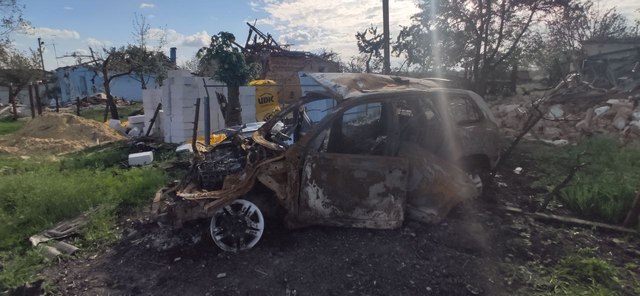
When asked about professional burnout, Mariya acknowledges feeling it before the invasion due to a sense of having covered everything. However, since February 24, new challenges arise daily, forcing journalists to work under shelling and capturing the realities of living in Ukraine. Professional burnout is now a secondary concern as the focus is on the urgent need to document and share the ongoing situation.
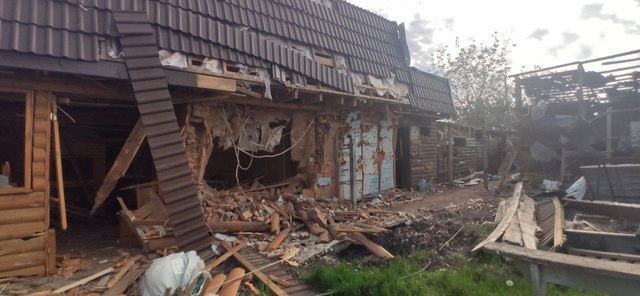
– Kharkiv is a border city that has been near the frontlines for many months and continues to suffer from shelling. Do you feel mutual support among Kharkiv journalists in these conditions?
– Yes! In Kharkiv, there is a cohesive journalistic community. I communicate with colleagues from other regional centers, and I can say that such support, collaboration between different media outlets, which usually compete with each other, is probably not found anywhere else.
— When the full-scale invasion began, we completely forgot about competition, and now we don’t perceive each other as competitors. We share information, videos. If someone doesn’t have a car, we take them along, provide transportation… Recently, when it turned out that some colleagues lacked turnstiles, I ordered a dozen and a half for them. Other journalists do the same: if someone can get something, help others, they always do it. I am very grateful to my colleagues in Kharkiv for being like this.
– You often have to cooperate with journalists from other countries. How are they different from our colleagues?
– I don’t like generalizations. There are colleagues from foreign media whom I admire. One of them is Mstyslav Chernov, who, by the way, is from Kharkiv but works for the Associated Press. The work he and Yevhen Maloletko did in Mariupol, being essentially the only filming crew in the city surrounded by the enemy, is monumental. Thanks to them, the world learned about the crimes committed by Russians in Mariupol. If Mstyslav and Yevhen weren’t there, the Russians would have managed to hide what they were doing because there was no connection, and no other colleagues were working there.
— On the other hand, there are foreign colleagues who, coming here, don’t quite understand the context. Understandably, unlike us, they didn’t witness this war from its beginning in 2014. They sometimes ask quite strange questions like, “Why not give up Luhansk and Donetsk so that you stop being bombed?
— There are many cool foreign colleagues – we watch their live broadcasts and feel impressed by how accurate their materials are.
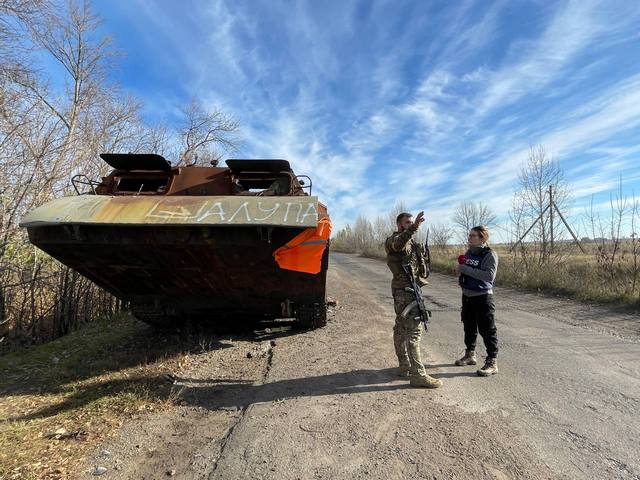
“To work, a journalist must be undamaged.”
– Dangers for you began even before the war – you had an experience of being beaten while performing professional duties during the Revolution of Dignity. Clearly, no one wishes for such an experience. But now, looking back, can you draw a conclusion: did it help or harm your professional life?
– I am a person who tries to see usefulness in any situation. If it weren’t for that episode with the beating of the cameraman near the Kharkiv Internal Troops Academy, if we didn’t have our equipment smashed, perhaps I wouldn’t be so cautious. It was a lesson that taught me that a healthy journalist with clear goals, eyes, hands, and preserved footage is much more useful than someone who forgets about fear and rushes to where they might end up on the front line. I still want to write and film about the liberation of our territories, the reconstruction of cities, and more. For that, I, my cameraman, and our equipment must be intact.
– What has been the biggest challenge for you since the beginning of the war? When was it the scariest?
– Living and working under shelling is quite challenging. However, this is a common problem for all Ukrainians (especially Kharkiv residents) since the start of the Russian aggression.
— Perhaps the scariest was in the first days of the large-scale war when Russian planes circled over Kharkiv, over our heads. You hear their roar as they drop bombs, trying to understand where exactly these bombs fell…
— Planes overhead are probably the scariest. Although just yesterday, we were working in Vovchansk, Kharkiv region, and artillery shells were exploding 200 meters away from us. When you are so close to the epicenter of shelling, it is also very scary. There is no difference whether you might die from an air bomb or artillery. So, it’s hard to say what was the scariest.
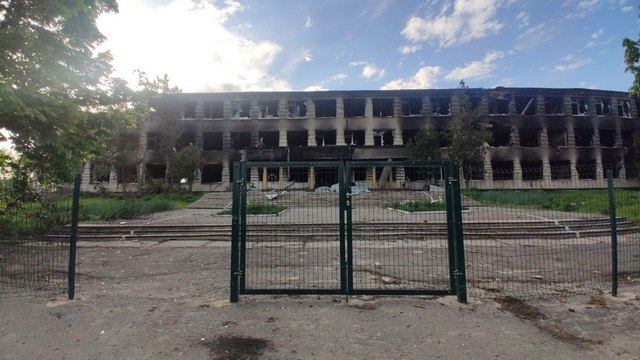
– To what extent did the protective gear sent by UNESCO to the National Union of Journalists help in your journalistic work?
– From the first day when I received this equipment from the National Union of Journalists of Ukraine, I have been using it on every trip. I have extensive experience wearing bulletproof vests and helmets since 2014 when we had an old, huge bulletproof vest. I am of relatively short stature, so it was cumbersome for me, and besides, it didn’t fit tightly to the body, thus not properly protecting. In the new, lighter, and more comfortable bulletproof vest, I am much more mobile, and it positively affects work efficiency!
– Do foreign colleagues have a more careful attitude towards safety?
– Yes, almost all filming crews from reputable foreign media have a “security officer,” a security guard who is also a driver. Typically, this is a former military or law enforcement officer, often not Ukrainian but from the country from which the filming crew came.
— Our foreign colleagues are more meticulous about protective measures. Those who have already worked in other wars know why it’s crucial to wear a bulletproof vest and a helmet. They rarely take off their armor and helmets and are quite cautious in their work.
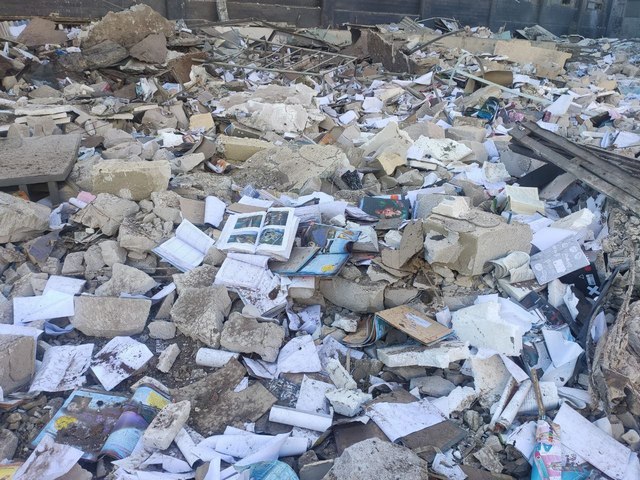
– Working in dangerous conditions is always a psychological trauma. How do you cope with it?
– I am not an exception: every Ukrainian receives psychological and emotional traumas every day. I think we will learn about the consequences of these traumas later…
— Yes, working as a journalist in a war is difficult. It is emotionally challenging. March was particularly difficult when my parents were still in Mariupol, and I was simultaneously going through the work process, the events happening in the country, and concern for my family. Yes, emotionally, it’s very challenging! I don’t think anyone can be prepared for this.
— I am very grateful to colleagues from the Lviv Media Forum who took us to the Carpathians for a week. I returned to work on October 16 and feel that since then, I have become much more effective in my work, more attentive, more focused. Such a reboot allows you to distract from sirens, explosions, helps to scroll the phone less in search of information. Such reboots stabilize a lot. So, to work effectively, you need to reboot like this.
“The idea of pro-Russian Kharkiv is largely a myth.”
– Before the war, Kharkiv was considered one of the centers of pro-Russian forces. Has anything changed?
– In fact, the idea that Kharkiv supported the successors of the Party of Regions until February 24 is a myth. Since 2014, the city has changed significantly. In Kharkiv, there is the writer Serhiy Zhadan, there are many people who, throughout all eight years, have done a lot to ensure that Kharkiv residents no longer identify themselves with what happened, for example, at the Palace of Sports on February 22, 2014, when Yanukovych came to Kharkiv before fleeing to Rostov-on-Don.
Note: After the victory of Euromaidan in Kyiv, President Viktor Yanukovych went to Kharkiv to hold a congress of deputies from all levels of the South and East of Ukraine on February 22, 2014, at the Palace of Sports. He essentially declared a new state with its capital in Kharkiv. However, tens of thousands of Kharkiv residents came to the Palace of Sports and disrupted this congress.
— So, a lot has changed in Kharkiv. Therefore, I repeat, the idea of pro-Russian Kharkiv is largely a myth. Although in Kharkiv region, there are still people who, even after 8 months of defending our land, hiding civilians and soldiers, still don’t care, Russia or Ukraine, and they side with the occupiers. For example, in Kupiansk, almost the entire local authorities became collaborators. And it was quite difficult for me to hear that in Kupiansk, there is no head of any communal enterprise. Now, when they need to provide people with gas, light, water, it has become obvious that it’s not only because of the damaged communications but also because there are simply no people who know these communications, understand them.
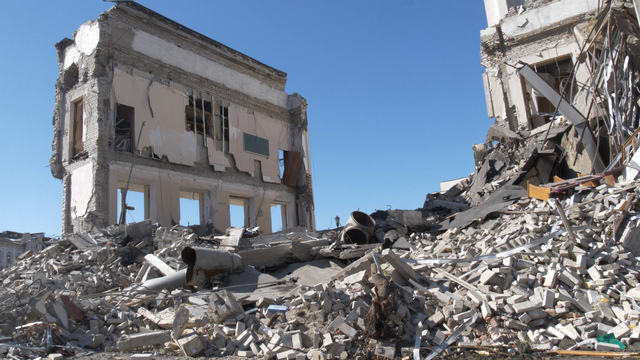
– How many collaborators are found in the deoccupied cities?
– It varies greatly everywhere. I gave the example of Kupiansk. There are probably many collaborators in Vovchansk too. There seem to be fewer of them, as I think, in the Derhachi direction, although even there in Kozachia Lopan (near the border), there were quite a few collaborators. They were giving border guards, veterans to the Russians. Collaborators were everywhere, and those who supported the occupiers were everywhere, some more, some less.
— I don’t think anyone can name percentages. Moreover, those who supported the occupiers now pretend that nothing like that happened. I had a case when in a deoccupied settlement, we recorded a comment from a man who expressed himself in a very pro-Ukrainian way. Later, other residents of that settlement wrote to me that he actually collaborated with the occupiers, and now, when the Ukrainian forces came, he quickly “rebranded” himself and talks about how much he “loves Ukraine.”
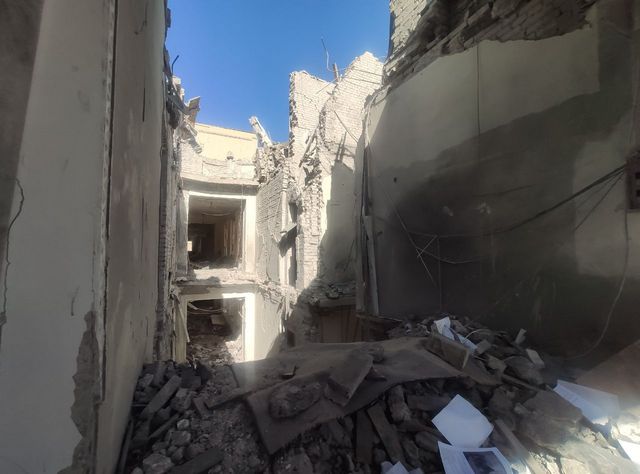
– Finally, representatives of UNESCO asked to inquire about other challenges you faced during the war, besides those mentioned in this interview.
– In addition to physical, emotional, nervous exhaustion, enemy shelling, and the mere existence of a country like Russia next to us – it’s hard to imagine what other challenges there might be.
This series, titled Shot Freedom of Speech, is created as part of a project Drawing Ukrainian And International Audience’s Attention To Serious Violations Of Human Rights And Crimes Against Journalists And Mass Media By The Russian Federation, which is performed by the National Union of Journalists of Ukraine, with support from the Swedish non-profit organization Civil Rights Defenders.
JOURNALISTS ARE IMPORTANT. Stories of Life and Work in Conditions of War is a cycle of materials prepared by the team of the NUJU with the support of the Swedish human rights organization Civil Rights Defenders.
#CRD

 THE NATIONAL UNION OF
JOURNALISTS OF UKRAINE
THE NATIONAL UNION OF
JOURNALISTS OF UKRAINE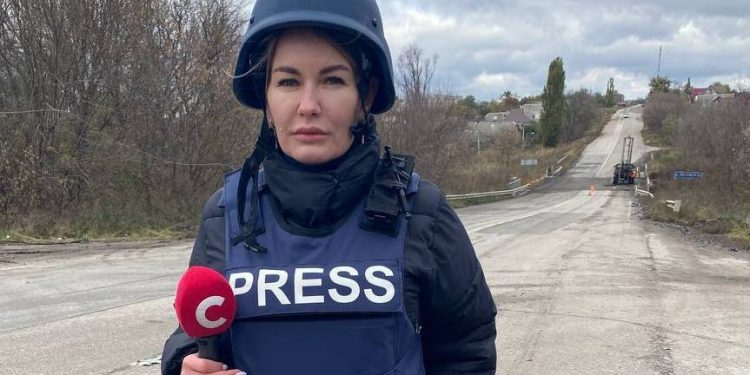
















Discussion about this post